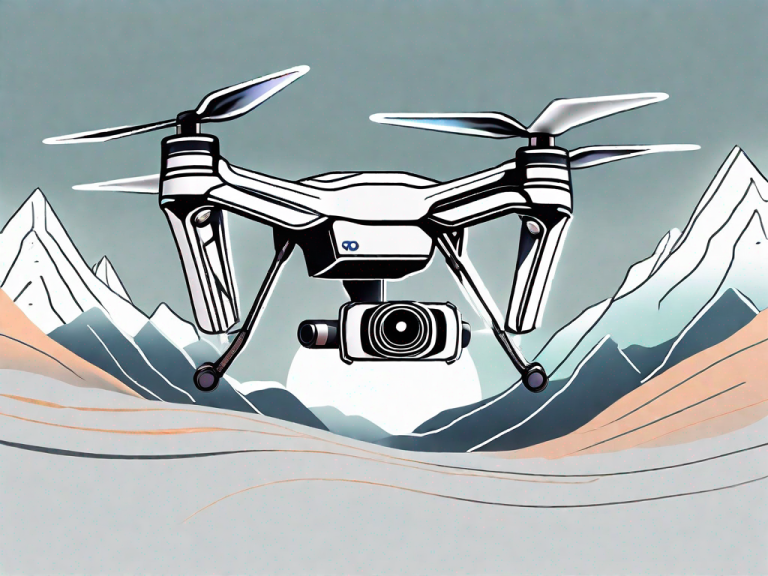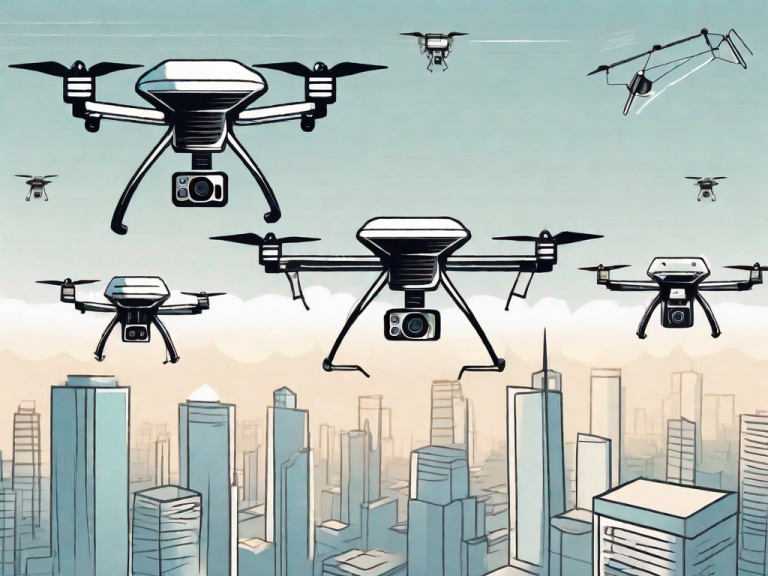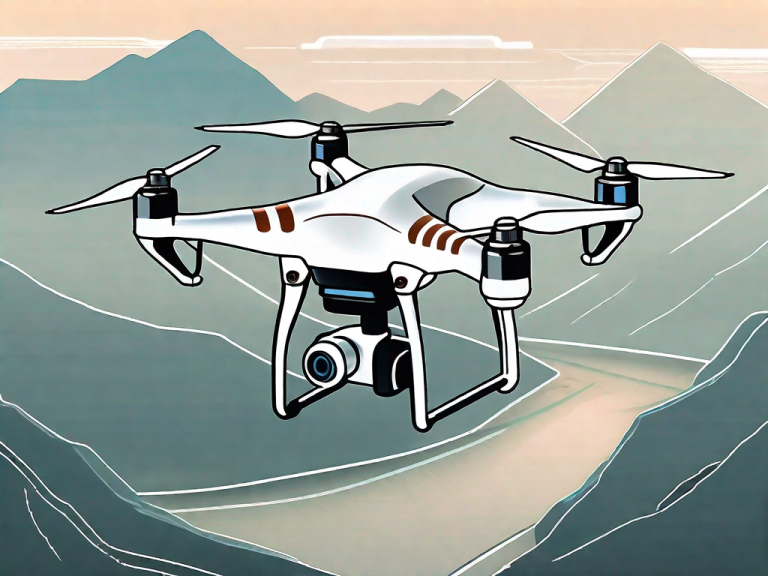Do you enjoy exploring the world from a unique perspective? Are you an aspiring drone pilot searching for the best spots to spread your wings and take flight? Look no further! In this article, we will uncover the best drone flying spots near you. From understanding drone flying regulations to finding the perfect location, we’ve got you covered. So, grab your drone and let’s dive into the world of aerial exploration!
Understanding Drone Flying Regulations
Before we delve into the exciting world of drone flying spots, it is important to familiarize ourselves with drone flying regulations. As responsible drone pilots, it is our duty to follow both local laws and national aviation authority guidelines to ensure safety and adhere to the rules.
Drone flying regulations are put in place to ensure the safety and privacy of individuals, as well as the smooth operation of airspace. These regulations vary from region to region, and it is crucial for drone pilots to be aware of and comply with them.
Local Laws and Regulations
Every region or city may have specific laws and regulations regarding drone flying. It is crucial to research and understand these local laws before taking flight. By doing so, we can avoid any legal issues and ensure a positive drone flying experience.
Local laws often cover various aspects of drone flying, including restricted zones, permits, and height restrictions. Restricted zones are areas where drone flying is prohibited due to safety concerns or privacy considerations. These areas may include government buildings, airports, or densely populated areas. It is important to respect these restrictions and avoid flying in prohibited zones.
In some cases, obtaining a permit may be necessary to fly a drone in certain areas. This is typically required for commercial drone operations or when flying in sensitive locations. Permits help ensure that drone pilots have the necessary skills and knowledge to operate their drones safely and responsibly.
Height restrictions are another important aspect of local drone flying regulations. These restrictions are in place to prevent interference with manned aircraft and to maintain a safe distance from people and property on the ground. By adhering to height restrictions, drone pilots can minimize the risk of accidents and ensure the safety of those around them.
National Aviation Authority Guidelines
In addition to local laws, national aviation authorities often provide guidelines for drone flying. These guidelines are designed to promote safe and responsible drone operations on a larger scale.
One common guideline is the maximum altitude that drones can fly. This is to prevent drones from interfering with manned aircraft, which typically operate at higher altitudes. By adhering to the maximum altitude guidelines, drone pilots can ensure the safety of both their drones and other aircraft in the vicinity.
Another important guideline is the requirement to keep drones in visual line of sight. This means that drone pilots should always be able to see their drones with unaided vision. Maintaining visual contact with the drone allows pilots to react quickly to any potential hazards and avoid collisions with other objects or aircraft.
Furthermore, national aviation authorities often specify the minimum distances that drones should maintain from airports or helipads. These distances are in place to prevent interference with manned aircraft during takeoff and landing. By respecting these distances, drone pilots can contribute to the overall safety and efficiency of aviation operations.
It is important for drone pilots to stay updated with any changes or updates to local laws and national aviation authority guidelines. These regulations may evolve over time as technology advances and new safety considerations arise. By staying informed and following the regulations, we can ensure safe and enjoyable flights for ourselves and others.
Factors to Consider When Choosing a Drone Flying Spot
Now that we understand the regulations, let’s dive into the exciting part – finding the best drone flying spots near you. There are several factors to consider when selecting a location that suits you and your drone.
Open Space Availability
When it comes to flying drones, open spaces are a drone pilot’s best friend. Look for locations that offer expansive open fields or meadows where you can enjoy uninterrupted flights. The more open the space, the more freedom you’ll have to maneuver your drone and capture breathtaking aerial footage.
Imagine soaring through the sky, your drone gliding effortlessly over vast green fields. The sense of freedom and exhilaration is unmatched as you navigate through the open space, capturing stunning shots from above. The wide-open expanse allows you to experiment with different flight patterns and angles, giving you endless creative possibilities.
Not only do open spaces provide ample room for your drone to roam, but they also offer a sense of tranquility and peace. Surrounded by nature’s beauty, you can immerse yourself in the serene atmosphere while capturing breathtaking footage of the landscape below. The open space allows you to push the boundaries of your creativity and capture shots that will leave viewers in awe.
Proximity to Residential Areas
While open spaces are important, it’s essential to consider the proximity to residential areas. Flying drones near homes can cause privacy concerns and disturb residents. Aim to find spots where you can enjoy your flights without encroaching on residential areas.
Picture yourself in a picturesque location, away from the hustle and bustle of city life. You’ve found the perfect spot to fly your drone, surrounded by nature’s beauty. As you take off, you can rest assured that you’re not intruding on anyone’s privacy. The peace of mind that comes from knowing you’re respecting the privacy of others allows you to fully immerse yourself in the joy of flying your drone.
By choosing a location that is far from residential areas, you can fly your drone without any worries. You can explore the skies, capturing stunning footage without causing any disturbance to the nearby residents. This not only ensures a pleasant experience for you but also maintains a harmonious relationship with the community.
Weather Conditions
Weather conditions play a crucial role in drone flying. Windy and stormy weather can affect the stability and safety of your drone. Check the weather forecast before heading out and ensure that conditions are favorable for flying. Clear skies and minimal wind will provide optimal flying conditions.
Imagine a clear blue sky stretching endlessly above you, not a cloud in sight. The gentle breeze brushes against your face as you prepare to launch your drone. The perfect weather conditions set the stage for an incredible flight experience. With minimal wind, your drone remains stable in the air, allowing you to capture smooth and steady footage.
On the other hand, flying a drone in unfavorable weather conditions can be a challenging and risky endeavor. Strong winds can cause your drone to sway and lose stability, making it difficult to control. Stormy weather poses an even greater threat, with rain and lightning potentially damaging your equipment. By checking the weather forecast beforehand, you can ensure that you choose a day with ideal conditions for drone flying.
Top Drone Flying Spots in the City
Living in a bustling city doesn’t mean you have to miss out on the joy of flying drones. Many cities offer designated areas and public parks where you can legally and safely fly your drone, capturing stunning cityscapes from above.
Public Parks for Drone Flying
Public parks often provide spacious areas where drone pilots can take flight. These parks usually have fewer restrictions, making them a great option for beginners or those looking for a relaxed flying experience. Just make sure to double-check park regulations and follow any guidelines set by park authorities.
Special Drone Flying Zones
Some cities have designated special zones exclusively for drone flying. These zones are designed to accommodate drone enthusiasts, providing facilities and ample space for safe flying. Research and explore whether your city offers any special drone flying zones, as these locations are often popular amongst fellow drone pilots.
Drone Flying in the Countryside
If you prefer a more scenic and serene flying experience, the countryside is the perfect getaway. Wide-open fields, meadows, and forest clearings can offer breathtaking backdrops for your aerial adventures.
Open Fields and Meadows
The countryside is abundant in open spaces, offering endless possibilities for drone pilots. Find those expansive fields and meadows where you can soar freely and capture nature’s beauty from above. Just be sure to respect private property and obtain permission if necessary.
Forest Clearings for Drone Flying
Forests provide a sense of tranquility and mystique. If you’re an adventurous drone pilot, seek out forest clearings that offer glimpses of sunlight through the trees. These clearings provide unique perspectives and make for stunning aerial shots.
Drone Flying Spots by the Sea
Nothing quite compares to the magic of drones flying over vast bodies of water. Whether it’s an ocean, a lake, or even a river, water provides a captivating element for aerial photography and videography.
Beaches and Coastal Areas
Coastal areas and beaches offer a perfect blend of land and sea. The juxtaposition of sand, waves, and skies creates a canvas for incredible aerial shots. Explore beautiful coastlines and capture the essence of the sea from above.
Cliffs and Open Waters
If you’re seeking more dramatic landscapes, cliffs and open waters provide a thrilling backdrop for your drone flights. Fly carefully near cliffs and ensure your drone maintains a safe distance from the water. The breathtaking views and untouched nature will make it an unforgettable experience.
Safety Tips for Drone Flying
Now that you’ve discovered some amazing drone flying spots, let’s take a moment to focus on safety. Safety should always be a top priority when flying drones to ensure not only the well-being of others but also the longevity of our flying adventures.
Pre-flight Checks
Prior to each flight, perform thorough pre-flight checks. Make sure your drone is in good condition, the battery is fully charged, and all components are working correctly. Additionally, ensure that your drone’s firmware, remote controller, and mobile app are all up to date.
Maintaining Visual Contact
While it can be tempting to explore far and wide with your drone, maintaining visual contact is crucial. Always keep your drone within eyesight and be aware of any potential obstacles or hazards. This will allow you to react quickly and avoid accidents.
Drone Etiquette and Respect for Nature
As drone enthusiasts, we have a responsibility to be respectful of our surroundings and the environment. By following some simple guidelines, we can enjoy our flying experience while minimizing our impact on nature and others.
Respecting Wildlife
When flying drones in natural areas, be mindful of wildlife and their habitats. Avoid disturbing animals and their breeding grounds. Maintain a safe and respectful distance to minimize any potential distress caused by the drone’s presence.
Minimizing Noise Pollution
Drones can be noisy, especially when flying in close proximity to residential areas. To minimize noise pollution and be considerate of others, fly your drone at a reasonable height and maintain a safe distance from residential areas. This will help ensure a peaceful coexistence between drone enthusiasts and local communities.
Enhancing Your Drone Flying Experience
Take your drone flying experience to the next level by exploring various accessories and trying out advanced flying techniques. These additions and techniques can elevate your flights and help you capture truly unique perspectives.
Drone Accessories
There is an array of accessories available to enhance your drone’s capabilities. From extra batteries to propeller guards and camera filters, these accessories can enhance flight time, protect your investment, and boost the overall quality of your aerial footage.
Advanced Flying Techniques
Once you’ve mastered basic drone flying skills, consider trying out advanced flying techniques. This can include maneuvers like orbits, fly-bys, and tracking shots. Experiment with the capabilities of your drone to capture cinematic shots that will truly astound your audience.
With these tips in mind, you are now armed with the knowledge to find the best drone flying spots near you, follow regulations, and ensure safe and enjoyable flights. Happy flying!
Frequently Asked Questions (FAQs)
-
Are there any restrictions on flying drones in city parks?
The restrictions on flying drones in city parks can vary. Some parks may have specific areas designated for drone flying, while others may prohibit drone flights altogether. It’s important to research and follow any guidelines or regulations set by the park authorities.
-
How do I find out about local drone flying regulations?
You can find out about local drone flying regulations by checking with your city’s local government or aviation authorities. They will have information regarding any restrictions, permits, or guidelines that you need to follow when flying drones in your area.
-
Can I fly my drone over water?
Yes, you can fly your drone over water, but caution is advised. Ensure that you have a clear line of sight and avoid flying too close to the water’s surface. Be mindful of wind conditions and take extra care when flying near bodies of water.
-
Are there any specific rules for flying drones in the countryside?
When flying drones in the countryside, it’s important to respect private property and obtain permission if necessary. Additionally, be mindful of local wildlife and their habitats, and avoid flying in areas where drone flights may cause disturbances.
-
Can I fly my drone in national parks?
Flying drones in national parks is generally prohibited due to concerns for wildlife, visitors’ safety, and potential noise disturbances. However, regulations may vary depending on the specific national park. Always check with the park authorities to see if drone flights are permitted.
-
What are some popular drone accessories?
Popular drone accessories include extra batteries, propeller guards, ND filters for cameras, and carrying cases. These accessories can enhance flight time, protect your drone, and improve the quality of your aerial photography or videography.
-
Are there any flying techniques I should practice?
Once you’ve mastered basic drone flying, you can try advanced techniques such as orbits, fly-bys, and tracking shots. These techniques can add a dynamic element to your aerial footage and showcase the capabilities of your drone.
| City | Local Regulations |
|---|---|
| New York City | Drones must be flown below 400 feet and stay at least 5 miles away from airports. |
| Los Angeles | Special permits are needed for drone flights within city limits. |
| London | Drones are not allowed within 150 meters of crowded places. |
| Name | Description |
|---|---|
| Extra Battery | Extend your drone’s flight time with an additional battery. |
| Propeller Guards | Protect your drone’s propellers from damage during flights. |
| ND Filters | These filters help control the amount of light entering the drone’s camera, enabling better exposure and photo quality. |









